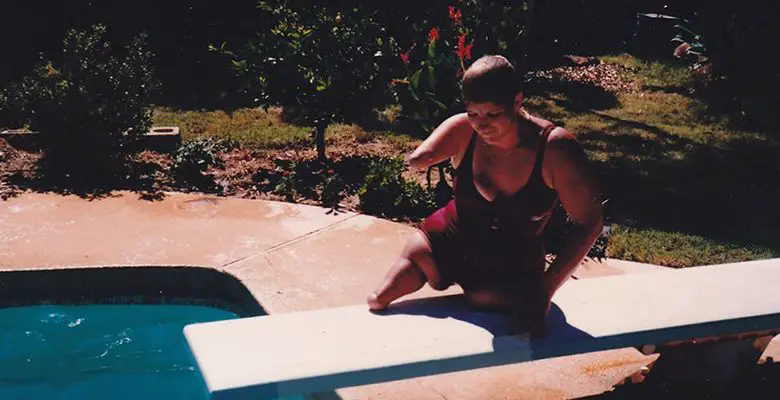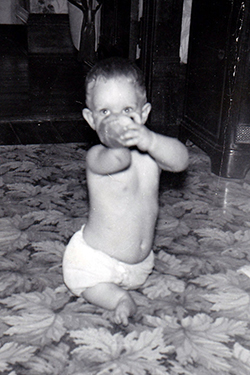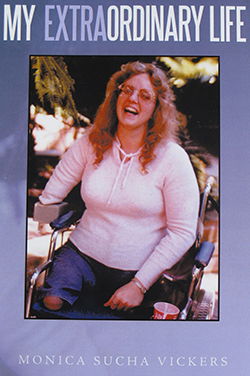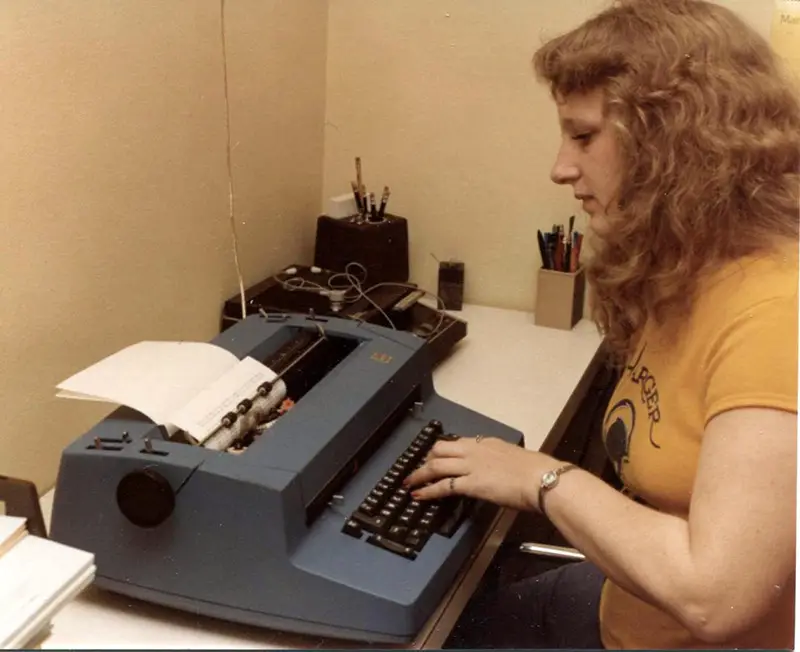
My Extraordinary Life: an amputee’s story of inspiration
This is an updated post from our archives. In this inspiring story, an amputee shares their journey of overcoming challenges, adapting to life with a prosthetic limb, and breaking down barriers in society. Their experience highlights the importance of resilience, accessibility, and support for disabled people.
Born without legs and with one arm, Monica Sucha Vickers could easily have given up hope of ever living life to the full. But she has led a busy and inspirational life, always believing that having a disability just takes someone on a different path.
She feels the greatest challenge is to change perceptions and stop people from seeing a disability before they see the person. Monica has published her life story to highlight her coping mechanisms, which have helped her achieve so much in her career and personal life, and encourages others to go forward and make the most of what their life can offer.
Here Monica tells her own story…
 I was born in Kansas in 1954 and raised in rural Nebraska. I learnt how to type with one hand whilst at Syracuse High School and, having graduated from there in 1972, I went on to study at the University of Nebraska. Whilst there I learnt how to drive and successfully graduated in 1976.
I was born in Kansas in 1954 and raised in rural Nebraska. I learnt how to type with one hand whilst at Syracuse High School and, having graduated from there in 1972, I went on to study at the University of Nebraska. Whilst there I learnt how to drive and successfully graduated in 1976.
My roommate and I then travelled to San Diego, California. After weeks of searching for a job there, I found what has, in fact, turned out to be my career. I became a medical transcriptionist, which involved typing out dictated medical reports.
I have worked in this field for over 40 years covering roles as a transcriptionist, a proofreader, editor, mentor, quality coach and instructor. I also owned my own business for over 10 years.
My hobbies are very typical of many other people – I like jigsaw puzzles, embroidery, shopping and I enjoy reading and watching movies and TV, especially medical and true crime programmes.
All along I have believed that my life has been very ordinary. But my grandmother would often say to me: “Monica you should write a book about your life, people should know.” I asked her why she thought that people would find my life in the least bit interesting and she would just say: “Some day you will know.” I came to realise how important it was to her when, just before she died, she asked me again to promise that I would write a book about my life.
It took some time to get going, but when I finally started to write, the reason for doing it suddenly became clear – my life story was worth telling because others could perhaps be encouraged to move forward and realise what’s possible.
Published in 2013, My Extraordinary Life is my true-life story. It details my physical and emotional struggles, my triumphs and the adversities. I cover many customary life events like school, college, job interviews, job promotions, dating and children. But more importantly, I also talk about how additional obstacles, such as discrimination, stereotypes, ignorance, fear, jealousy and anxiety, have turned out to be much more difficult to manage than my disability.
My book also includes advice on how to deal with these struggles – what not to do or say when meeting a disabled person, how to handle awkward and untimely questions or stares from children, how to cope with various emotional challenges and how to get through difficult days.
I also give guidance on how to learn to type with one hand, a skill that has certainly proved to be a good life choice for me.
 Book reviewers have said that they like how I talked about and addressed issues around job interviews, as well as discrimination when it comes to job promotions. But their highest praise came for the chapter on dating trials and tribulations and my relationship with my now husband.
Book reviewers have said that they like how I talked about and addressed issues around job interviews, as well as discrimination when it comes to job promotions. But their highest praise came for the chapter on dating trials and tribulations and my relationship with my now husband.
Although many say I am inspirational, I sometimes struggle with that notion. I believe that living with a disability is simply a lifestyle – nothing more than a different path in life. It doesn’t make one courageous, brave or heroic. In my case it was a long time before it even occurred to me that my life had some not so subtle differences.
So, I hope my book helps to change the way the world perceives disabled people, to shatter erroneous stereotypes and standards set by others. I hope too that sharing my story will encourage others.
For those who might like to find out more, please visit my website, My Extraordinary Life, for book reviews, book awards, YouTube videos, links to my social media sites and book ordering details.
My Pinterest site contains lots of information on wheelchairs, prosthetics, disabled sporting groups, links to incredible organisations such as the Amputee Coalition of America and information on inspirational quotes, books and movies.
By Monica Sucha Vickers
Adapting to Life After Limb Loss
Adjusting to life after an amputation can be challenging, but many amputees find strength in community, technology, and personal resilience. Whether it’s through using advanced prosthetic limbs or making small everyday adaptations, disabled people continue to lead fulfilling and independent lives.
- Prosthetic technology advancements: Modern prosthetics offer greater mobility, comfort, and functionality.
- Support networks: Connecting with other amputees through Limbless can provide emotional and practical support.
- Sport and recreation: Adaptive sports, such as wheelchair basketball or para-cycling, help many regain confidence and stay active.
- Workplace inclusion: Employers are increasingly making adjustments to accommodate disabled employees.
If you are new to living with limb loss, consider reaching out to organizations such as The Limbless Association for guidance and support.
Everyday Life Hacks for Amputees
Living with limb loss comes with challenges, but there are plenty of practical solutions to make daily life easier. Here are some simple but effective life hacks:
- Adaptive tools: Devices like gripping aids help with everyday tasks such as cooking and dressing.
- Customizing clothing: Velcro fastenings and magnetic buttons can make getting dressed quicker and easier.
- Household modifications: Installing grab bars and using non-slip mats help with mobility and safety at home.
- Time-saving tricks: Using a voice-activated assistant like Alexa or Google Home can simplify tasks such as setting reminders or controlling lights.
Originally posted on 16/05/2016 @ 12:27 am
